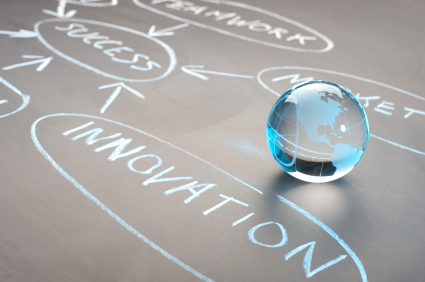Have you ever had two seemingly unrelated things happen around the same time and each in some way produced an insight into the other? Well it happened to me recently.
A bright and ebullient student came to visit me at my innovation lab seeking some career advice for a creative person soon to be in possession of an MBA from a top flight school. She had been offered the standard issue brand manager position at a humongous packaged goods conglomerate as well as a promising gig at a nameplate consulting firm back east.
When I asked what she wanted from a career her crisp reply was simply “to be happy.” I pressed as to what exactly brought her happiness. With a chagrined smile she simply said, “I want to be a writer.” Fair enough, “why don’t you just start writing your novel now?” I asked. “Because I know it would take years to become a successful author and I want to be happy now.” And there it was: the tradeoff of getting a little of what we want now or a lot of what we want later.
The following day I had a meeting with an executive of a venerable multinational corporation to discuss potential innovation strategies that would move his stock price up. He liked my unique approach for synchronizing the scope and scale of his massive enterprise to provide complex solutions that were well beyond the reach of rivals and upstarts. What he didn’t like was the three year timeline I estimated it would take to successfully maneuver into position. And there it was again: the tradeoff of getting a little of what we want now or a lot of what we want later.
And then it clicked. Innovation is lot like happiness. Neither the student nor the executive were willing to invest the necessary time, our most precious currency, to achieve the return that they genuinely sought – personal happiness and professional innovation. Too much happiness today, happy hours and retail therapy for example, brings too little tomorrow. Conversely, if you pay everything forward there is little left in the till to meet the obligations of today. As with most maneuvers, balance is way of the wise.
Here’s the rub: we live in an instant world – coffee, ATMs and movies on demand – but following your bliss or making innovation happen requires that you’ve run enough experiments and have gained enough experience to not only master your disposition and your trade but to exceed it. Both happiness and innovation require trudging through the ordinary to reach the extraordinary. The way is long and the tolls are high. That’s why most turn back and take the convenient job or the follow the industry leaders.
There are two forms of time most relevant to the human experience:
- Chronological time which can be maximized via the efficient sequential organization of tasks. This form can be seen in every productivity app on your smart phone.
- Developmental time which resists compression because it must be fully experienced as it naturally unfolds. This form becomes self evident when you learn a new language or acquire a new skill.
Chronological time, our authoritarian task master, has so thoroughly dominated our lives that we scarcely have a moment to think beyond the daily checklist. This lack of soak time not only cheats us of the intervals in which we produce happiness and creativity but also alters our sense of perspective. If the eternal present is all that there is, what hope is there for the future where we make our world better for those who follow?
With apologies to enlightened beings everywhere, the power of now is not just contemplative and appreciative but also progressive. Put another way, now is not just where we end but rather where we start. Mindfulness of our happiness is not an invitation to accepting our lives as they are now but rather a call to creating the lives we seek experience some time hence. Happiness and innovation are investments. We may forgo the pleasures of today for the satisfaction that our discipline may bring tomorrow.
So the next time you want to be happy, or to create something marvelously new, ask yourself when you really need it and when it is most likely to happen. Managing our own expectations of time gives us the power and purpose to realize our more lofty ambitions.
Who knows, you might even become an author or raise the price of your stock.
